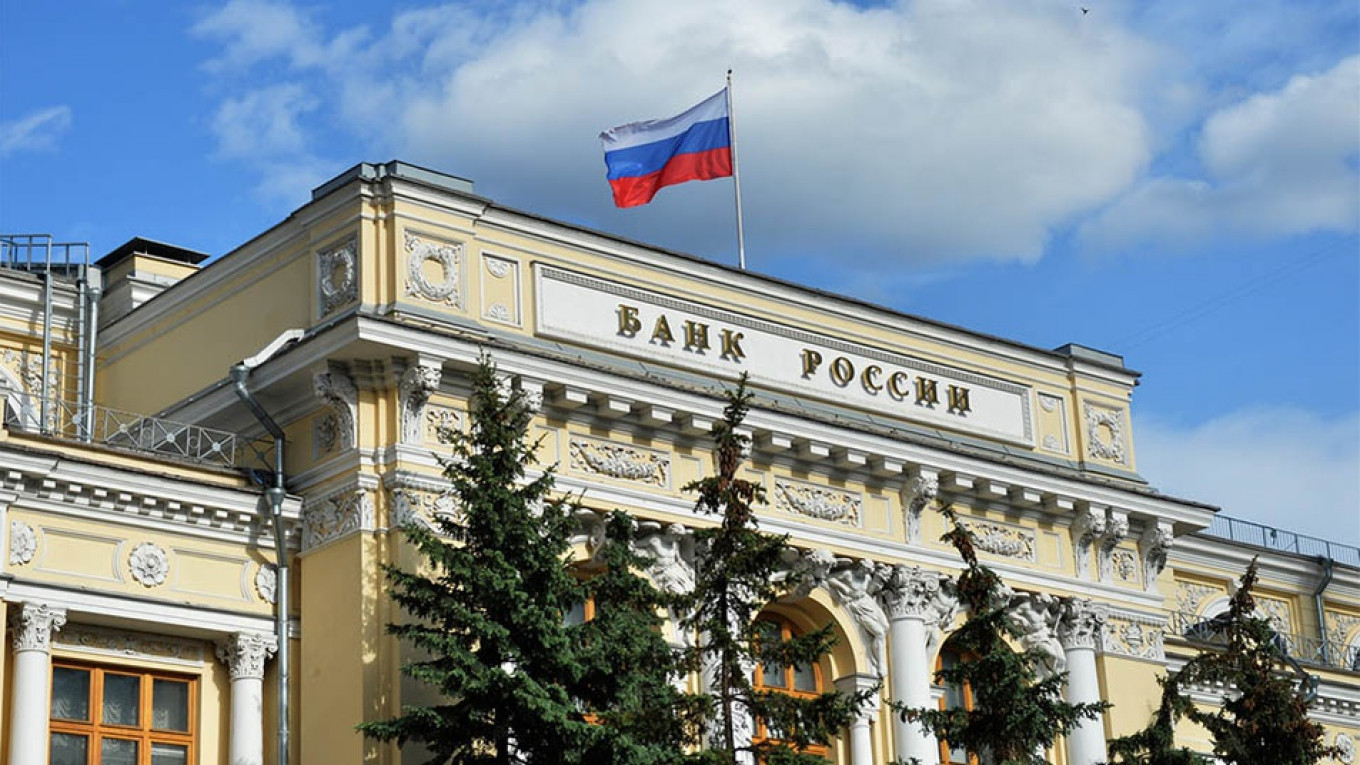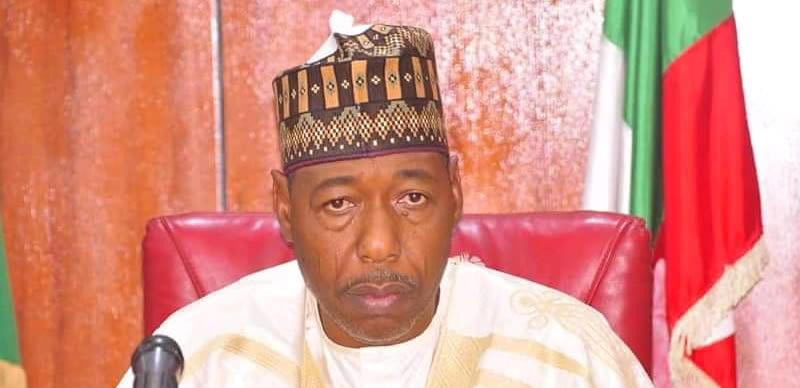Headlines
The United States has Barred Russia’s Central Bank from doing Dollar Transactions

By Derrick Bangura
The impact of Russia’s ongoing war with Ukraine on the Russian economy is growing by the day, as the country becomes increasingly isolated. As part of its response to Russia’s invasion of Ukraine, the US said on Monday that it would prohibit American currency transactions with the Russian central bank and entirely block the Russian direct investment fund.
According to top US administration sources, the aggressive action was directed at some of Russia’s most powerful tools of reducing the impact of sanctions.
In addition, the US Embassy in Russia warned US nationals to consider leaving “immediately” due to the rising number of airlines that are cancelling flights in and out of the country and closing their airspace to Russian airlines.
That was as indications emerged on Monday that the federal government might have secured 479 Nigerians in the effort to take citizens out of Ukraine amid the Russian attack.
The steps by the US to cut dollar supply to Russia were meant to prevent Russia from accessing a “rainy day fund” that officials said Moscow had been expecting to rely upon during the invasion of Ukraine.
Against plans to use the reserves to buffer a plummeting ruble, Russia would no longer be able to access the funds it keeps in US dollars, according to CNN.
The sweeping new sanctions – taken with Germany, France, the UK, Italy, Canada, the European Union and others – came as Russia’s economy is already in free-fall.
“No country is sanction proof,” a White House official said. “Putin’s war chest of $630 billion in reserves only matters if you can use it to defend his currency, specifically by selling those reserves in exchange for buying the ruble. After today’s actions that will no longer be possible, and fortress Russia will be exposed as a myth.”
In a phone call with reporters Monday morning, a senior US administration official said the move was “the culmination of months of planning and preparation across our respective governments across technical, diplomatic and political channels, including at the highest levels.”
CNN quoted the official as saying, “We were ready and that’s what allowed us to act within days, not weeks or months, of Putin’s escalation.
“Our strategy, to put it simply, is to make sure that the Russian economy goes backward as long as President Putin decides to go forward with his invasion of Ukraine.”
In a bid to mitigate the impact of the sanctions on US and European energy consumers, the Treasury Department would exempt most energy-related transactions from the sanctions, a significant carve-out in the sanctions.
One official called the on-going sanctions a “vicious feedback loop that’s triggered by Putin’s own choices and accelerated by his own aggression.”
The sanctions also fully block the Russian Direct Investment Fund and its CEO, Kirill Dmitriev.
Another official said they were “symbols of deep seated Russian corruption and influence peddling globally.
“Today’s actions represent the most significant actions the US Treasury has taken against an economy of this size and assets of this size.
“What also makes this asset significant is not just the amount of assets or the size of the country we’re targeting, but the speed at which our partners and allies have worked with us to enact this response.”
Asked about potential additional sanctions on Belarus, which appears poised to elevate its role in Russia’s invasion of Ukraine, an official said the US was watching events “very carefully” and that sanctions on Belarus would “continue to ratchet much higher.”
Battles continued Monday near several key Ukrainian cities as Russia presses further into the country.
Russian forces are facing “stiff resistance” with slowing momentum in northern Ukraine, a US defense official said, while invading troops are having a “little bit more success” in the south.
Russian forces have “slowed their offensive” but are “still trying” to take Ukrainian ground around the country, according to the Ukrainian military.
Talks between Russian and Ukrainian delegations also got underway Monday in Belarus. In the lead-up to the meeting, Ukraine demanded an “immediate ceasefire and withdrawal of Russian troops.”
More than 500,000 refugees have fled Ukraine to neighbouring countries after the beginning of the invasion, the United Nations Refugee Agency said Monday.
Ukrainian President Volodymyr Zelensky asked European countries to do more to support his nation on Monday asked the European Union to “urgently admit Ukraine” to the bloc.
A new CNN poll showed Americans overwhelmingly support increased economic sanctions against Russia and broadly support further action to stop Russia’s invasion of Ukraine, but most oppose direct US military action.
Eighty-three percept of Americans said they favoured increased economic sanctions against Russia in response to the invasion, with just 17 per cent opposed.
The US Embassy in Russia warned US nationals that they should consider leaving “immediately” due to the rising number of airlines cancelling flights in and out of the country and countries closing their airspace to Russian airlines.
The embassy said in an advisory, “An increasing number of airlines are cancelling flights into and out of Russia, and numerous countries have closed their airspace to Russian airlines. US citizens should consider departing Russia immediately via commercial options still available.
“The US Embassy reminds US citizens that the Department of State’s Travel Advisory level for Russia is at ‘Level 4: Do Not Travel.’”
Nigeria and South Africa expressed alarm at reports that their nationals were being stopped from leaving war-torn Ukraine. At Lviv train station, in western Ukraine, FRANCE 24 met several African students who said they were pushed back at the Medyka border crossing with Poland.
However, African governments yesterday scrambled to help their nationals escape the Russian invasion in Ukraine, as reports emerged of racist and unfair treatment of their citizens at the border with Poland. The reports, denied by both Polish and Ukrainian officials, cast a pall on the massive evacuation effort that had already seen half a million civilians cross into the European Union.
While some Africans had been able to leave Ukraine, FRANCE 24 spoke to several students at Lviv train station in western Ukraine who said they were turned back by Ukrainian border guards while attempting to cross into Poland.
“They stopped us at the border and told us that Blacks were not allowed. But we could see White people going through,” said Moustapha Bagui Sylla, a student from Guinea. He said he fled his university residence in Kharkiv, Ukraine’s second-largest city, as soon as the bombing began.
Like thousands of Ukrainian civilians scrambling for the border, the young Guinean said he walked for hours in freezing temperatures heading for the Polish frontier village of Medyka – only to be ordered to turn back.
Moustapha Bagui Sylla had been studying medicine in Ukraine’s Kharkiv for the past year.
Another student from Nigeria described similar scenes at the border crossing. He said his group, which included women, was shut out of the border post even as White people were let through.
“They won’t let Africans in. Blacks without European passports cannot cross the border. They’re pushing us back just because we’re Black!” said the Nigerian student, who gave only his first name, Michael. “We’re all human,” he added. “They should not discriminate against us because of the colour of our skin.”
Jean Ngando, a French teacher from Cameroon, said he was looking for alternative routes to avoid being pushed back at the Polish border, France 24 reported.
According to Bagui Sylla, the Ukrainian border guards said they were merely following instructions from their Polish counterparts – a claim denied by officials in Warsaw.
Anna Michalska, a spokesperson for the Polish border guards, said she had spent “the past two days denying such allegations”.
She told FRANCE 24, “I don’t know what is happening on the Ukrainian side of the border, but we let everyone in regardless of nationality.”
Later, Polish officials reaffirmed that no visas were required to cross the border and that identity cards and passports, even if expired, would be allowed.
Natacha Daniels, a Nigerian student, expressed concern that she would be denied exit from Ukraine since her passport was in the hands of officials in Kharkiv, where she studies economics.
Headlines
Noble Ladies Champion Women’s Financial Independence at Grand Inauguration in Abuja

Women from diverse backgrounds across Nigeria and beyond gathered at the Art and Culture Auditorium, Abuja, for the inauguration and convention of the Noble Ladies Association. The event, led by the association’s Founder and “visionary and polished Queen Mother,” Mrs. Margaret Chigozie Mkpuma, was a colourful display of feminine elegance, empowerment, and ambition.
The highly anticipated gathering, attended by over 700 members and counting, reflected the association’s mission to help women realise their potential while shifting mindsets away from dependency and over-glamorization of the ‘white collar job.’ According to the group, progress can be better achieved through innovation and creativity. “When a woman is able to earn and blossom on her own she has no reason to look at herself as a second fiddle,” the association stated.
One of the association’s standout initiatives is its women-only investment platform, which currently offers a minimum entry of ₦100,000 with a return of ₦130,000 over 30 days—an interest rate of 30 percent. Some members invest as much as ₦1 million, enjoying the same return rate. Mrs. Mkpuma explained that the scheme focuses on women because “women bear the greater brunt of poverty” and the platform seeks “to offer equity in the absence of economic equality.”
Education is also central to the Noble Ladies’ mission, regardless of age. Their mantra, “start again from where you stopped,” encourages women to return to school or upgrade their skills at any stage in life. The association believes that financial stability is vital in protecting women from cultural practices that dispossess widows of their late husbands’ assets, while also enabling them to raise morally and socially grounded families.
Founded on the vision of enhancing women’s skills and achieving financial stability, the association rests on a value system that discourages pity and promotes purpose. “You have a purpose and you build on that purpose to achieve great potentials and emancipation,” Mrs. Mkpuma said.
A criminologist by training and entrepreneur by practice, she cautions against idleness while waiting for formal employment. “There are billions in the informal and non-formal sectors waiting to be made,” she said, rejecting the “new normal of begging” and urging people to “be more introspective to find their purpose in life and hold on to it.”
Mrs. Mkpuma’s management style keeps members actively engaged, focusing on vocational skills and training to prepare them for competitive markets. She is exploring “innovative integration of uncommon technologies” and is already in talks with international franchises to invest in Nigeria, with Noble Ladies as first beneficiaries.
The association’s core values include mutual respect, innovation, forward-thinking, equal opportunity, and financial emancipation. With plans underway to establish a secretariat in the heart of Abuja, the group aims to expand its impact.
The event drew high-profile guests, including former Inspector General of Police, Mike Okiro, and a host of VIPs, marking a significant milestone in the association’s drive for women’s empowerment.
Headlines
NEPZA, FCT agree to create world-class FTZ environment

The Nigeria Export Processing Zones Authority (NEPZA) has stepped in to resolve the dispute between the Federal Capital Territory Administration and the Abuja Technology Village (ATV), a licensed Free Trade Zone, over the potential revocation of the zone’s land title.
Dr. Olufemi Ogunyemi, the Managing Director of NEPZA, urged ATV operators and investors to withdraw the lawsuit filed against the FCT administration immediately to facilitate a roundtable negotiation.
Dr. Ogunyemi delivered the charge during a courtesy visit to the Minister of the Federal Capital Territory, Barrister Nyesom Wike, on Thursday in Abuja.
You will recall that the ATV operators responded to the revocation notice issued by the FCT administration with a lawsuit.
Dr. Ogunyemi stated that the continued support for the growth of the Free Trade Zones Scheme would benefit the nation’s economy and the FCT’s development, emphasizing that the FCT administration recognized the scheme’s potential to accelerate industrialisation.
Dr. Ogunyemi, also the Chief Executive Officer of NEPZA, expressed his delight at the steps taken by the FCT minister to expand the economic frontier of the FCT through the proposed Abuja City Walk (ACW) project.
Dr. Ogunyemi further explained that the Authority was preparing to assess all the 63 licensed Free Trade Zones across the country with the view to vetting their functionality and contributions to the nation’s Foreign Direct Investment and export drives.
“I have come to discuss with His Excellency, the Minister of the Federal Capital Territory on the importance of supporting the ATV to succeed while also promoting the development of the Abuja City Walk project. We must work together to achieve this for the good of our nation,” he said.
On his part, the FCT Minister reiterated his unflinching determination to work towards President Bola Ahmed Tinubu’s Renewed Hope Agenda by bringing FDI to the FCT.
“We must fulfil Mr. President’s promises regarding industrialization, trade, and investment. In this context, the FCT will collaborate with NEPZA to review the future of ATV, a zone that was sponsored and supported by the FCT administration,” Wike said.
Barrister Wike also said that efforts were underway to fast-track the industrialisation process of the territory with the construction of the Abuja City Walk.
The minister further said the Abuja City Walk project was planned to cover over 200 hectares in the Abuja Technology Village corridor along Airport Road.
According to him, the business ecosystem aimed to create a lively, mixed-use urban center with residential, commercial, retail, hospitality, medical, and institutional facilities.
He added that the ACW would turn out to be a high-definition and world-class project that would give this administration’s Renewed Hope Agenda true meaning in the North-Central Region of the country.
Barrister Wike also indicated his continued pursuit of land and property owners who failed to fulfil their obligations to the FCT in his determination to develop the territory.
Headlines
Benue IDPs block highway, demand return to ancestral homes

Vehicular movement along the Yelwata axis of the Benue–Nasarawa highway was brought to a standstill on Wednesday as Internally Displaced Persons, IDPs, staged a protest, demanding immediate return to their ancestral homes.
The protesters, believed to be victims of persistent attacks by suspected herdsmen, blocked both lanes of the busy highway for several hours, chanting “We want to go back home”.
The protest caused disruption, leaving hundreds of motorists and passengers stranded.
Eyewitnesses said the displaced persons, many of whom have spent years in overcrowded IDP camps, are expressing deep frustration over the government’s delay in restoring security to their communities.
“We have suffered enough. We want to return to our homes and farms,” one of the protesters told reporters at the scene.
Security personnel were reportedly deployed to monitor the situation and prevent any escalation, though tensions remained high as of press time.
Efforts to reach the Benue State Emergency Management Agency, SEMA, and other relevant authorities for comment were unsuccessful.
-

 Headlines4 years ago
Headlines4 years agoFacebook, Instagram Temporarily Allow Posts on Ukraine War Calling for Violence Against Invading Russians or Putin’s Death
-

 Headlines4 years ago
Headlines4 years agoNigeria, Other West African Countries Facing Worst Food Crisis in 10 Years, Aid Groups Say
-

 Foreign4 years ago
Foreign4 years agoNew York Consulate installs machines for 10-year passport
-

 News1 year ago
News1 year agoZero Trust Architecture in a Remote World: Securing the New Normal
-

 Entertainment3 years ago
Entertainment3 years agoPhyna emerges winner of Big Brother Naija Season 7
-

 Headlines1 year ago
Headlines1 year agoNigeria Customs modernisation project to check extortion of traders
-

 Entertainment2 years ago
Entertainment2 years agoMovie download platform, Netnaija, announces closure
-

 Economy2 years ago
Economy2 years agoWe generated N30.2 bn revenue in three months – Kano NCS Comptroller

















